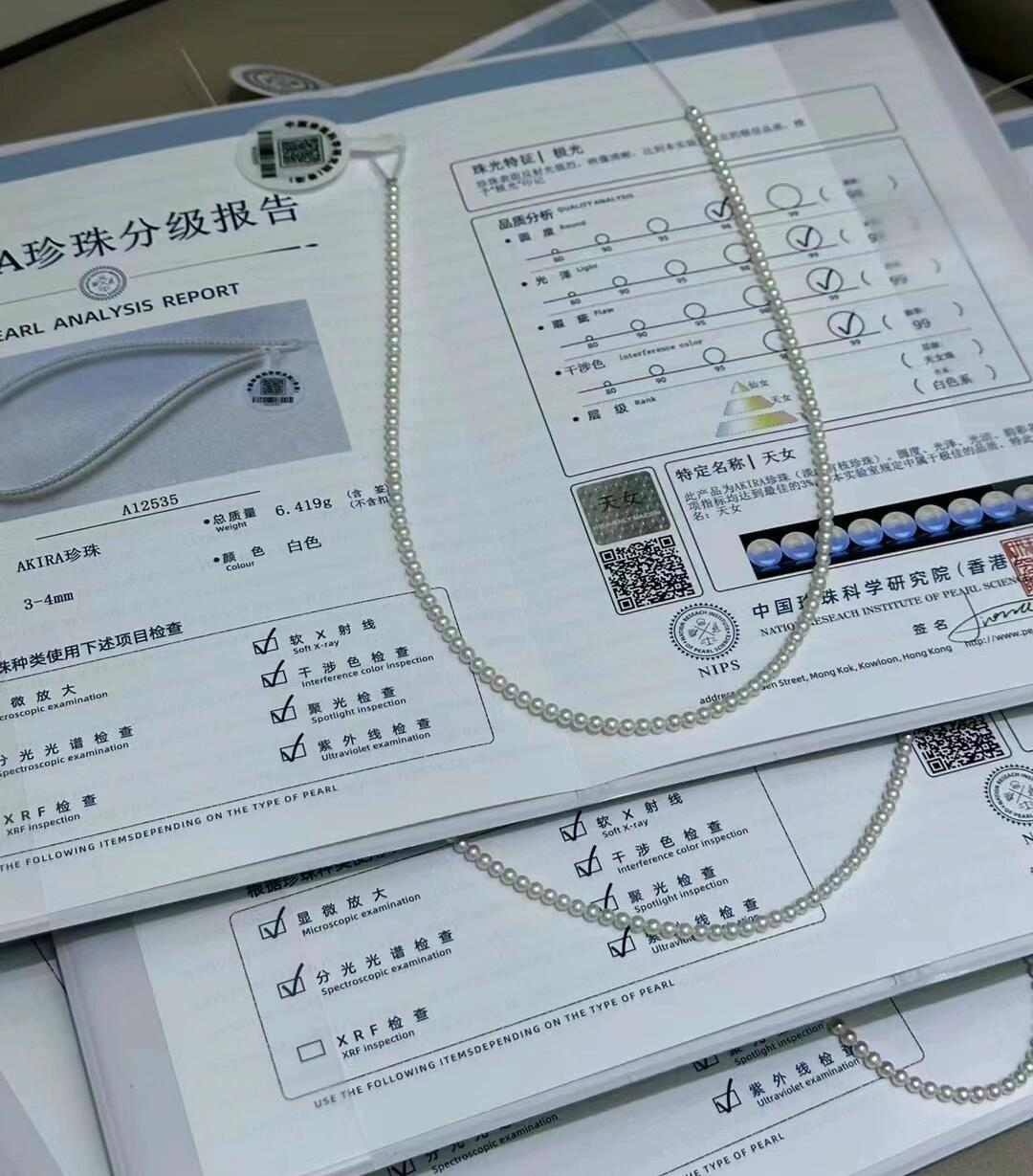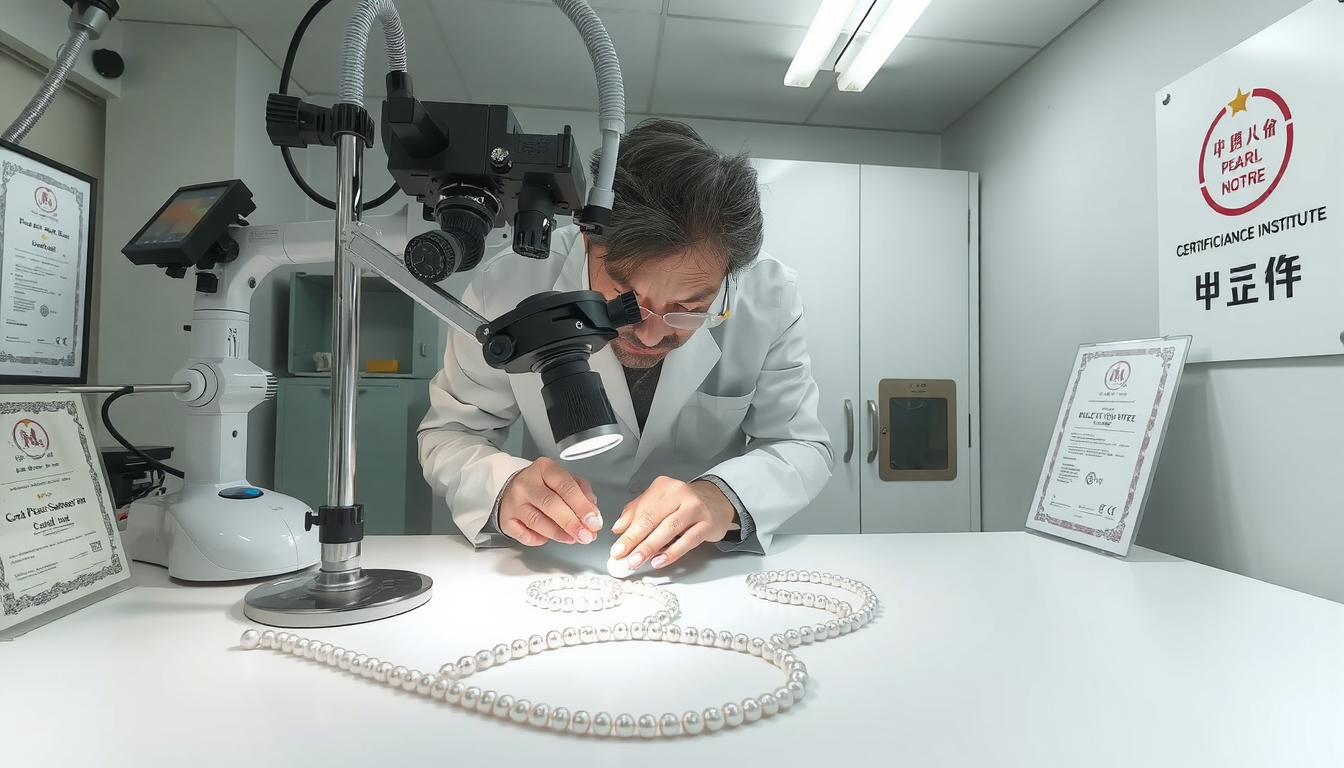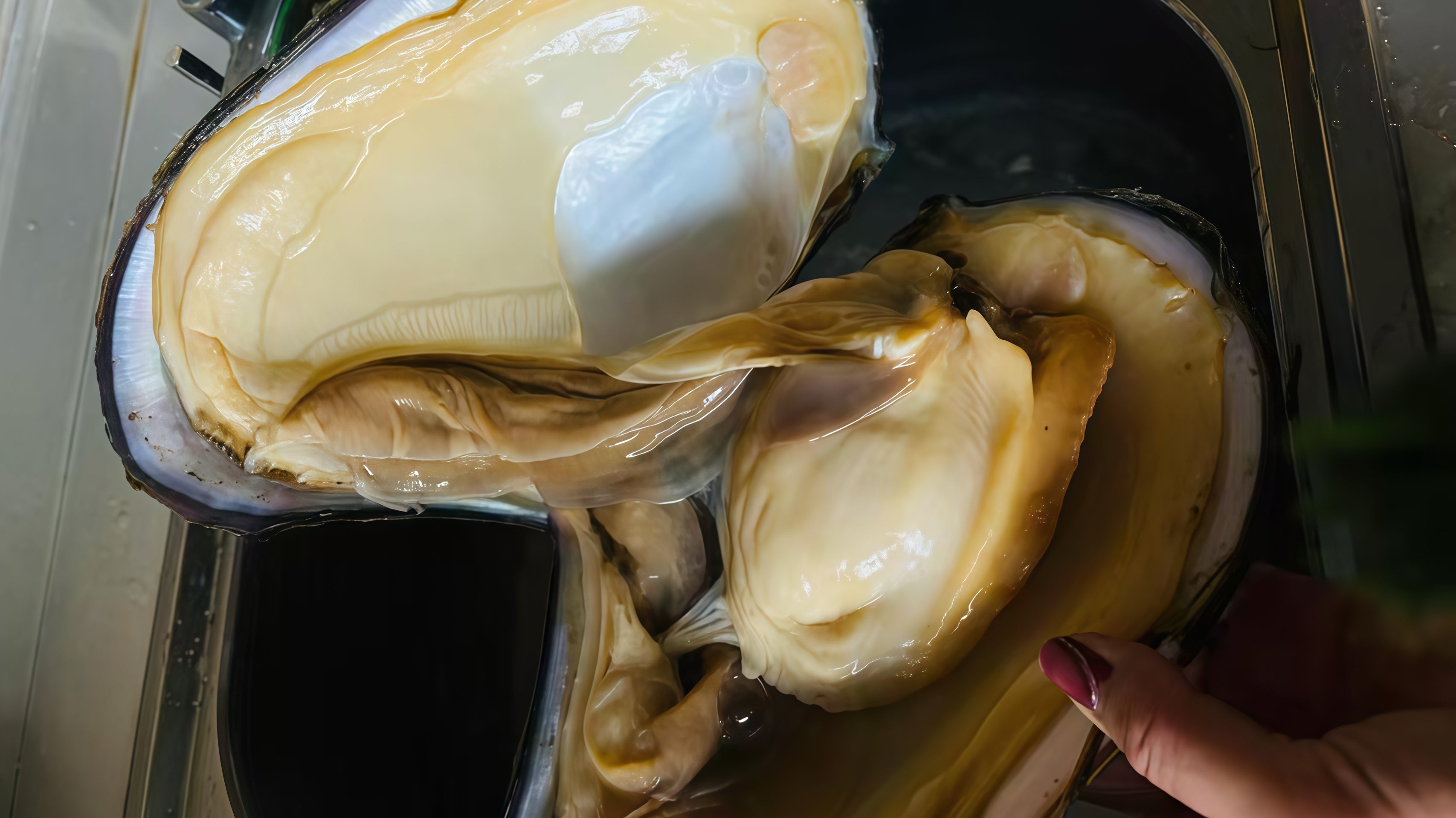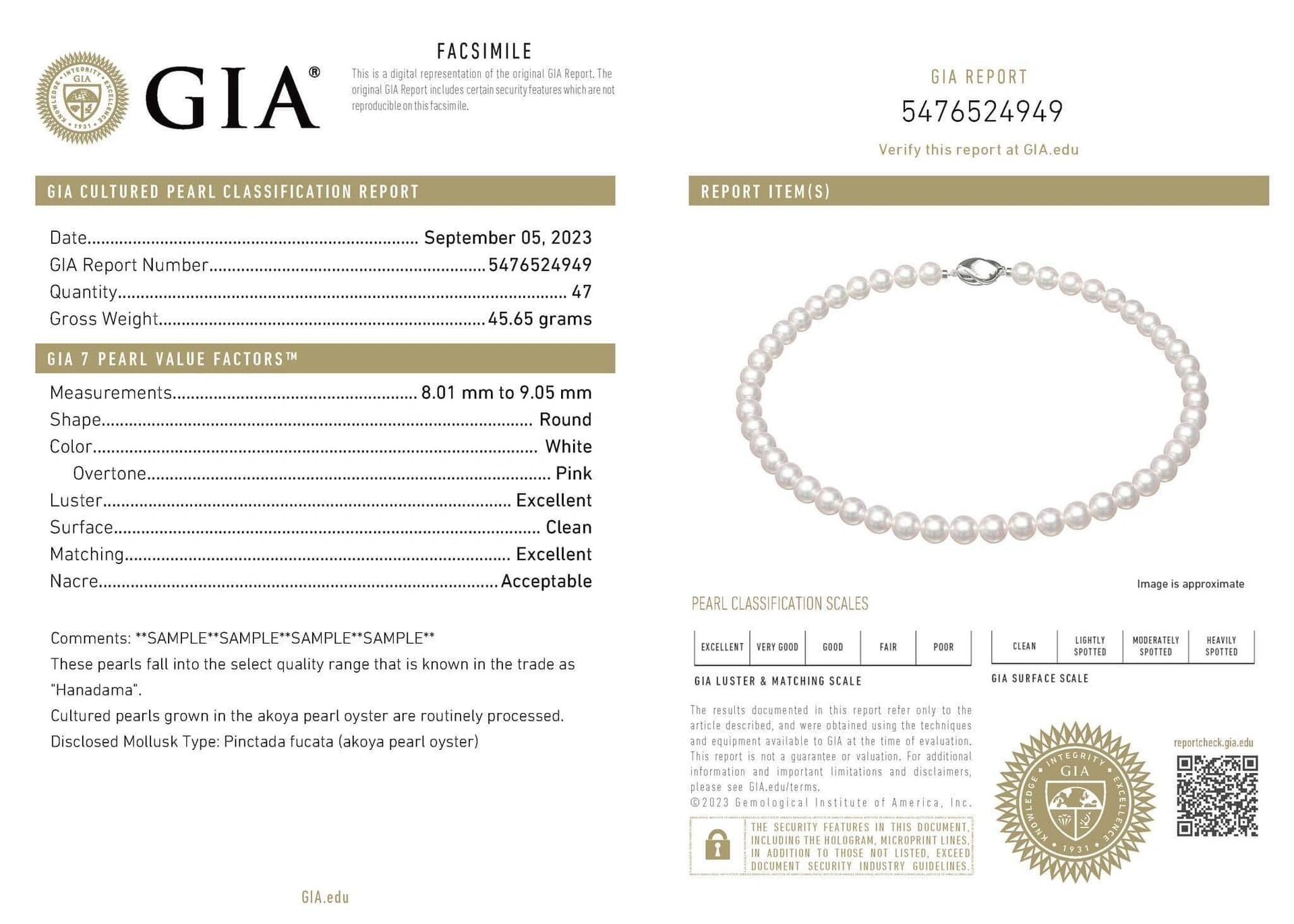
Can You Trust Pearl Certifications? Expert Guide 2026
Can You Trust Pearl Certifications? A Closer Look at the China Pearl Science Institute
When you buy a fine pearl, you often see a small card with it. This is a pearl certification. You might ask, "Can I trust this paper?" The answer is not simple. It depends on the pearl itself.

Different pearl certifications have different values. You need to know which lab works best for which pearl. This helps you buy with confidence. This guide will explore pearl grading for 2026. We will look at labs from around the world to China's "Pearl Town," Zhuji. We will examine GIA, GUILD, GRC, and the important China Pearl Science Institute.
Key Takeaways
- Trust in a pearl certification depends on matching the lab to the pearl type.
- Global labs like GIA are the standard for expensive saltwater pearls. These include South Sea, Tahitian, and Akoya pearls.
- The China Pearl Science Institute (CPSI) leads in high-end freshwater pearls. These make up most of the world's supply.
- CPSI helped create grading terms for freshwater pearls. This includes the "Aurora" grade for top luster.
- For a Tahitian pearl, get a GIA report. For a world-class freshwater pearl from Zhuji, a CPSI report gives the best analysis.
The Global Benchmarks: Understanding GIA, GUILD, and GRC in the Pearl World
To understand any market, you need to know the major players. In gems, a few labs set the standard for trust. Their reports are like a passport for a gemstone. They are accepted around the globe. These labs are often found in major pearl trading centers. This includes Zhuji, the heart of the freshwater pearl industry.
GIA (Gemological Institute of America): The Universal Standard
The GIA is the world's top authority in gemology. For diamonds, colored stones, and pearls, a GIA report is the gold standard. They are known for strict grading and advanced research.
GIA grades pearls using their 7 Pearl Value Factors. This system gives a complete way to judge a pearl's quality. The factors are size, shape, color, luster, surface quality, nacre quality, and matching. This detailed framework is why GIA's reports are trusted for the most valuable pearls. These include natural pearls and high-end saltwater pearls like South Sea, Tahitian, and Akoya. You can learn more about GIA's 7 Pearl Value Factors.
For an investment-grade pearl, a GIA pearl certification gives unmatched peace of mind.
GUILD Gemological Laboratory: A Trusted Alternative
Another well-respected name is the GUILD Gemological Laboratory. As an independent lab, GUILD has built a strong reputation. This is especially true in the international trade of colored stones and pearls.
Their reports are known for being reliable and thorough. While GIA is often seen as number one, a GUILD report is a strong sign of quality. Many dealers and jewelers use GUILD for their pearl certifications. Buyers can feel confident in their findings.
What About GRC (Gemresearch Center)?
In the markets of Zhuji, you may also see reports from GRC. This lab is another option in the region. Sellers sometimes use it as a more accessible or local choice for pearl certifications. While it may not have the same global name as GIA or GUILD, it plays a role in the local gem trade.
The Freshwater Specialist: Why the China Pearl Science Institute (CPSI) is Crucial
Global labs set a broad standard. But sometimes you need a specialist. This is especially true for freshwater pearls. The China Pearl Science Institute (CPSI) is that specialist. Understanding its role is key to understanding the modern pearl market.

The Need for a Specialist in Zhuji
Zhuji, China is often called the "Pearl Town" for good reason. It is the center of the global freshwater pearl industry. Over 95% of all freshwater pearls in the world come from pearl farms around this area.
In recent years, freshwater pearl quality has exploded. We now have large, round Edison pearls and unique Soufflé pearls. These rival traditional saltwater pearls in beauty. This vast range of quality requires a specialized grading system. A global lab that grades all types of gems may not focus on the small differences. These differences define a good freshwater pearl from a great one. This is where a dedicated lab like CPSI becomes essential.
As an industry insider, I can tell you something important. When sourcing in Zhuji, a seller will show a GIA report for a fine Tahitian pearl. But for their absolute best freshwater pearls, they will proudly present a CPSI certificate. They know that CPSI has the specific expertise to identify and certify the unique qualities of these gems.
About Pearl Science Laboratory in Japan
If you would like to learn about the most authoritative pearl research institution in Japan, the Pearl Science Laboratory, we recommend reading this dedicated article for a deeper and more technical perspective on Japanese pearl grading and scientific evaluation.
And here is the offical website for Pearl Science Laboratory PSL
The "Aurora Effect": How CPSI Defined Top-Tier Luster
One of the best examples of CPSI's influence is in how we talk about luster. Luster is the most important factor in a pearl's beauty. It is the intense glow that seems to come from within. For freshwater pearls, CPSI was central in adopting a term for the very highest level of luster: "Aurora" (极光).
This term was originally used by the Pearl Science Laboratory in Japan. It was perfected for the freshwater market by institutions like CPSI. It is not just a fancy word. It is a specific grade that goes beyond a simple "Excellent" rating.
An Aurora pearl has an incredibly bright and sharp surface. You can see clear, crisp reflections on it. It also has a deep, rainbow-like quality with hints of pink and green. This creates a visual effect like the northern lights. CPSI helped create the benchmarks for this top-tier quality. Now "Aurora" is an industry-wide term for the finest freshwater pearls on the market. Having a pearl certification with this grade is a big deal.

What to Look for on a China Pearl Science Institute Certificate
A CPSI report is designed to give a deep understanding of a freshwater pearl's quality. When you look at one, you will find details that might be missing from more general reports.
- Precise Nacre Thickness: Measures the thickness of the pearl's layers. This relates to its durability and luster.
- Detailed Luster Grade: Uses a specific, tiered system. "Aurora" is the highest possible grade.
- Detailed Surface Grade: Notes any blemishes with high precision.
- Official Classification: Will clearly state the "Aurora" (极光) classification if the pearl meets the strict criteria.
Comparative Analysis: Which Pearl Certification Should You Trust?
So, with all these options, how do you choose? The key is not to think of one lab as "better." Instead, understand their expertise. The need for a comprehensive pearl grading system means different labs focus on different areas. Trust comes from matching the right pearl certification to the right pearl.
| Laboratory | Primary Expertise | Luster Grading | Best For | Why Trust It |
|---|---|---|---|---|
| GIA | Saltwater Pearls (South Sea, Tahitian, Akoya), Natural Pearls, All Gems | Based on 7 Value Factors (e.g., Excellent, Very Good) | Investment-grade saltwater pearls, natural pearls, and high-value jewelry. | The global industry benchmark for consistency, integrity, and research. |
| GUILD | All Gems, with a strong presence in pearls. | Comprehensive analysis similar to GIA's framework. | High-quality pearls and colored gems in the international trade. | A highly respected independent lab known for its reliability and expertise. |
| CPSI | High-end Freshwater Pearls (Edison, Soufflé, etc.) | Uses specific, tiered names like "Aurora" (极光) for the highest grade. | Top-quality, gem-grade freshwater pearls, especially from Zhuji. | Unmatched specialization and deep knowledge of the freshwater pearl market. |
Conclusion: Match the Certificate to the Pearl for True Confidence
In 2026, the world of pearl certifications is more complex than ever. But it is also more transparent if you know what to look for. Trust is not about finding one lab that is better than all others. It is about understanding that different labs have different strengths.
True confidence comes from matching the certificate to the pearl. A GIA report is your best friend when buying a valuable Tahitian or South Sea pearl necklace. But if you are looking at a truly exceptional freshwater pearl from Zhuji, a China Pearl Science Institute certificate with the "Aurora" grade is the ultimate proof of its world-class quality.
Frequently Asked Questions (FAQ) about Pearl Certifications
Is a pearl without a certificate worthless?
Not at all. Many beautiful and genuine pearls are sold without certificates. This is especially true at lower price points where the cost of a report is not justified. However, for a significant purchase, a pearl certification from a reputable lab provides crucial verification. It confirms the pearl's quality, identity, and value.
Does the China Pearl Science Institute (CPSI) grade saltwater pearls?
CPSI has the scientific capability to analyze any pearl. But its primary expertise and international reputation are built on grading freshwater pearls. For high-value saltwater pearls like South Sea or Tahitian, a report from a lab with a global focus is the market standard. Labs like GIA or GUILD are better choices for these types.
What does the "Aurora" (极光) effect actually look like?
The "Aurora" effect refers to the highest possible level of luster in a freshwater pearl. Imagine a pearl so reflective that you can see sharp, clear details of your reflection on its surface. It also has a deep, shimmering, rainbow-like quality that seems to glow from within the pearl. This is a rare and highly prized quality.
Are pearl certifications expensive?
The cost of pearl certifications varies by lab, pearl size, and detail level required. A full report from a top international lab like GIA can cost over a hundred dollars. Reports from specialized or regional labs may cost less. This cost is usually paid by the seller and is factored into the pearl's final price.
Can I submit my own pearl for certification?
Yes, absolutely. All major gemological labs accept submissions from the general public. This includes GIA and the China Pearl Science Institute. You can find instructions, fee schedules, and submission forms on their websites. This is a great way to get an independent assessment for a pearl you inherited or bought without a report.




Leave a comment
This site is protected by hCaptcha and the hCaptcha Privacy Policy and Terms of Service apply.